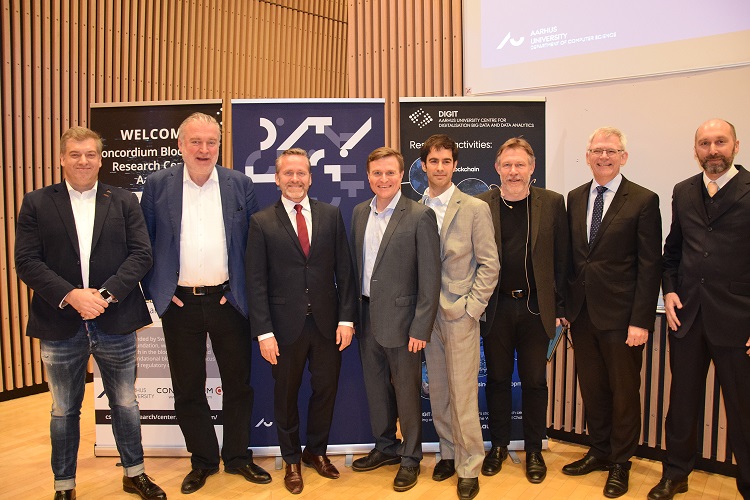The Concordium Blockchain Research Centre at Aarhus University opens on 1 February 2019. The centre will be researching into blockchain technology, with focus on security, transparency and general usability. The Concordium Foundation is donating funding of DKK 50 million (EUR 6.6 million) over five years.

"Our goal is to gather experience from previous generations of blockchains, compare this with the research we have conducted here at the department over the decade, and on the basis of this comparison forge new knowledge about the technology," says Professor Jesper Buus Nielsen, who is heading the Concordium Blockchain Research Center at Aarhus University.
Blockchain technology is considered as one of the most important technological discoveries in recent times. The technology is expected to revolutionise foreign exchange systems, strengthen copyrights and digitalise electoral systems. So far, however, the technology has had a slightly tarnished reputation due to problems with security, transparency and usability, among other things. A new research center at the Department of Computer Science at Aarhus University will now try to solve these problems.
"The new center will be a strong part of Aarhus University's comprehensive digitalisation initiatives and, together with the Centre for Digitalisation, Big Data and Data Analytics (DIGIT), which we established in 2017, it will give Danish IT research and education an important boost," says the dean at Science and Technology, Niels Christian Nielsen.
It is no coincidence that the research center is located at Aarhus University. The researchers at the Department of Computer Science are some of the best in the world within research areas of cryptography and verification, which are central to developing the blockchain technology.
“When we wanted to start a blockchain research team, we traveled the world to find the best researchers. Yet, we did not have to look far or long, because the best researchers in the world are sitting right here at Aarhus University. It is unique that all the right people with the right competencies are gathered at one department, and they create a solid scientific foundation for the Concordium Blockchain Research Center,”says Mateusz Tilewski, CTO at the Concordium Foundation.
"With an investment of this scale in Aarhus University's world-class computer scientists, Denmark is at the forefront of digitization providing companies and researchers a solid foundation for taking full advantage of the opportunities new technologies present," says Anders Samuelsen, Denmark's Minister for Foreign Affairs.
The new center is being funded by the Concordium Foundation, a newly established non-profit foundation, that is developing the Concordium Blockchain Network: a new-generation blockchain, with focus on user identification and transparency. The foundation is supporting the centre with just over DKK 10 million (EUR 1.3 million) a year over the first five years of the centre's lifetime.
"The Concordium Foundation has granted the Concordium Blockchain Research Center Aarhus DKK 50 million (EUR 6.7 million) over the next five years to fund non-targeted research into the technology. Our hope is that, in the long term, the research can help both the private sector and the public authorities to use blockchain technology securely and effectively for different types of transactions," says Lars Seier Christensen, chairman of the Concordium Foundation.
"With this grant, we get a unique opportunity to do non-targeted research in the blockchain technology, and all our results will be made publicly available. We see considerable untapped potential in the blockchain technology, and hope to help improve how it can be used in society, and make its use more widespread. Therefore, we’re very grateful for the support for our non-targeted research that we've now received from the Concordium Foundation," says Jesper Buus Nielsen.
Concordium Blockchain Research Center Aarhus will be located at Department of Computer Science at Aarhus University with Professor Jesper Buus Nielsen as center leader. All results from the centers research will be made publicly available via open access. More information about the center can be found here.